- Home
- Jude Hardin
Key Death (A Nicholas Colt Thriller Book 4)
Key Death (A Nicholas Colt Thriller Book 4) Read online
The characters and events portrayed in this book are fictitious. Any similarity to real persons, living or dead, is coincidental and not intended by the author.
Text copyright © 2013 Jude Hardin
All rights reserved.
No part of this book may be reproduced, or stored in a retrieval system, or transmitted in any form or by any means, electronic, mechanical, photocopying, recording, or otherwise, without express written permission of the publisher.
Published by Thomas & Mercer
P.O. Box 400818
Las Vegas, NV 89140
ISBN-13: 9781611098150
ISBN-10: 1611098157
Library of Congress Control Number: 2012917233
To Sue, who loves zombies.
CONTENTS
A NOTE FROM THE AUTHOR
CHAPTER ONE
CHAPTER TWO
CHAPTER THREE
CHAPTER FOUR
CHAPTER FIVE
CHAPTER SIX
CHAPTER SEVEN
CHAPTER EIGHT
CHAPTER NINE
CHAPTER TEN
CHAPTER ELEVEN
CHAPTER TWELVE
CHAPTER THIRTEEN
CHAPTER FOURTEEN
CHAPTER FIFTEEN
CHAPTER SIXTEEN
CHAPTER SEVENTEEN
CHAPTER EIGHTEEN
CHAPTER NINETEEN
CHAPTER TWENTY
CHAPTER TWENTY-ONE
CHAPTER TWENTY-TWO
CHAPTER TWENTY-THREE
CHAPTER TWENTY-FOUR
CHAPTER TWENTY-FIVE
CHAPTER TWENTY-SIX
CHAPTER TWENTY-SEVEN
CHAPTER TWENTY-EIGHT
CHAPTER TWENTY-NINE
CHAPTER THIRTY
CHAPTER THIRTY-ONE
CHAPTER THIRTY-TWO
CHAPTER THIRTY-THREE
CHAPTER THIRTY-FOUR
CHAPTER THIRTY-FIVE
CHAPTER THIRTY-SIX
CHAPTER THIRTY-SEVEN
CHAPTER THIRTY-EIGHT
CHAPTER THIRTY-NINE
CHAPTER FORTY
ACKNOWLEDGMENTS
ABOUT THE AUTHOR
A NOTE FROM THE AUTHOR:
Key Death grew from a short story of mine titled “Stalker,” published briefly in the spring of 2012 under a pen name. The story is no longer available, and I mention this only in case anyone who might have read it finds some of the character names and situations here familiar. Key Death is a brand-new adventure and, unlike the previous story, told from the inimitable perspective of private investigator Nicholas Colt.
CHAPTER ONE
When I was twelve, a movie called Time Traveling Zombie Bikers from Darkest Hell came to the drive-in theater in Hallows Cove, Florida, where I lived with my stepfather. Supposedly it was the first in a series of low-budget horror films featuring the zombie bikers, and rumor had it Time Traveling Zombie Bikers from Darkest Hell Visit Nazi Germany would be coming out later in the summer.
My best friend Joe Crawford and I begged his parents to take us, and one Saturday night they finally caved. They loaded some lawn chairs and a cooler full of soft drinks and an industrial-sized bag of cheese puffs into the back of their station wagon, and off we went. The film was rated R, so it was kind of a big deal. Joe and I hoped to hear a lot of cussing and see a lot of gore, and maybe even get a glimpse of a naked breast or two.
Thirty-some years later, news of another murder down in Key West triggered the memory of that movie.
The reporter on the car radio said it was the eleventh case in a bizarre series of homicides where the killer surgically removed the victims’ brains and then reattached the tops of their heads with Krazy Glue. In every case, asphyxiation was the official cause of death, but there were conflicting opinions about whether the victims were smothered before or after the initial cuts with the bone saw. My money was on after. Anyone sick enough to steal your brain is probably going to make you suffer for a while beforehand.
For obvious reasons, the mainstream media had dubbed the perpetrator of these heinous crimes The Zombie. One popular anchorperson on CNN even speculated that the killer might actually be eating the missing organs, although there was no real evidence to that effect.
Not all of the slayings had occurred in Key West, but the most recent three had, and some people—most notably a couple of smart-ass morning DJs in Jacksonville—had started calling the southernmost tip of our country Key Death. Tourism was down, as was the price of real estate.
“Aren’t you glad we don’t live in Key West?” Juliet asked.
Juliet was my date for the evening, and she also happened to be my wife. We were on our way to see John Fogerty in concert at the St. Augustine Amphitheatre.
“Some of the murders occurred up in Georgia,” I said. “And some of them in other states along the coast. You never know. He might even show up in a nice little subdivision thirty miles southwest of Jacksonville. Nobody is safe from The Zombie.”
I said it melodramatically as hell, mimicking a measure of ominous music at the end. Joking around was my way of coping with something that scared the living crap out of me.
Not serial killers.
Zombies.
Time Traveling Zombie Bikers from Darkest Hell did a number on me when I was twelve. There weren’t any naked women, but the graphic violence was over the top.
Zombies have seriously freaked me out ever since.
“It’s not funny,” Juliet said. “I feel sorry for the families of those people. The latest victim was only twenty-eight.”
“I wonder if young brains taste better than old brains. I’ll have to Google that when we get home.”
She slapped me on the arm. “How would you like it if you found me or Brittney with an empty skull?”
I decided not to go for the obvious joke on that one. Anyway, it would have been grossly inaccurate. Both my girls were extremely intelligent. Juliet was a registered nurse, working on her master’s degree, and Brittney, our adopted daughter, was a sophomore at the University of Florida, majoring in English with the intent to apply to law school. If anyone was missing a brain, it was me, Nicholas Colt. World-class guitar player with a crippled hand, ace detective with a revoked license. I like to blame my brainlessness on too many bottles of Kentucky whiskey over the years, but the truth is I was never that smart to begin with.
I turned left into the amphitheater parking area. “Maybe The Zombie won’t make it to the show tonight,” I said.
“Just shut up,” Juliet said, pretending to be annoyed with me.
I’d never met John Fogerty, not even back in the eighties when I played some of the world’s biggest stages with my band, Colt .45. He wasn’t touring much back then, and our paths just never seemed to cross.
But tonight that was going to change.
A friend of mine named Lonnie Williams played bass for the warm-up band, and he had sent me a couple of VIP passes for after the show. I was finally going to meet one of my all-time rock heroes, a man who had penned more classics than I had fingers to count them on.
I parked the car and we walked to the gate and gave the man our tickets. On the way to our seats we passed the concession stand, and I asked Juliet if she wanted anything.
“A beer, I guess. And some nachos.”
I paid for the beer and the nachos, and a double bourbon on the rocks for myself.
It was going to be a great night. I could just feel it.
I had no idea it was going to set the wheels in motion for the most horrendous seven days of my life.
CHAPTER TWO
They roll up to the diner in a cloud of fog and dust and exhaust fumes. These a
ren’t your ordinary zombies. They can talk, and even though they shuffle along in a dazed state when on foot, they somehow possess the coordination to handle motorcycles as well as any other gang of leather-clad thugs.
Their leader is a skinny guy named Rex. He has a shaved head and a goatee and eyes that ooze with bright-red blood every time he blinks. He climbs off his bike and shambles toward the diner’s entrance, followed by half a dozen of his evil zombie disciples.
Not only can these zombies talk and ride motorcycles, they somehow possess the ability to travel back in time. The choppers are modern, and the boys wear bell-bottoms and tie-dyed T-shirts and peace-sign necklaces, but the diner they walk into is straight from the 1940s. Gleaming steel and chrome, nineteen-cent hot dogs, Dizzy Gillespie’s “A Night in Tunisia” playing on the Seeburg jukebox in the corner.
“Brains and eggs,” Rex says to the guy behind the counter. “And some coffee.”
All the other walking corpses grunt and nod in agreement. They all want the same thing for breakfast. Brains and eggs.
The guy behind the counter flips the burger he has going on the grill, flicks his long cigar ash on the floor, looks at Rex and grins. “We got eggs,” he says. “But we seem to be fresh out of brains today.”
“Then I guess we’ll have to harvest some,” Rex says.
He jumps over the counter, grabs a meat cleaver and splits the cook’s head open like a cantaloupe…
Fogerty rocked the place.
The house lights came up after the second encore. While four thousand people clamored toward the exits, I took Juliet by the hand and led her in the opposite direction. We’d had good seats, fourth row in the pit, so we didn’t have far to go.
A guy wearing black pants and a black polo guarded the aisle leading backstage.
“Wrong way,” he said.
“We’re with the band,” I said.
It was a joke. When I was in junior high school, it was what you said to the ticket-taker at a show or a dance to try to get out of paying admission. The guy in the black polo just crossed his arms and looked at me. He never cracked a smile.
“That shit never worked back in the day, either,” I said. I flashed my VIP badge, and he waved us through.
The first thing I noticed backstage was a rack on wheels with about twenty electric guitars hanging from it. Fogerty’s guitars. All makes and models, all top-of-the-line. I couldn’t believe he traveled with so many. I imagined he had to employ at least two techs to keep them all strung and in tune.
My friend Lonnie was standing beside the rack, and a young woman was standing beside him. Lonnie motioned for me to come that way.
Fellow musicians are like family. If you’re part of the tribe, odds are you’re not going to shake a guy’s hand after not seeing him for a long time.
I gave Lonnie a hug. “Good set,” I said.
“Thanks, man.” He turned to the young woman standing beside him. “Wanda Taylor, meet the great Nicholas Colt.”
I introduced Juliet to Lonnie and his girlfriend.
“We’re just going to head back and talk to John real quick,” I said, motioning toward the backstage lounge area. From my position I could see Fogerty through the glass door, standing there in his trademark flannel and denim, signing the back of a woman’s T-shirt with a Sharpie.
“Wanda wants to talk to you for a minute,” Lonnie said.
“Sure,” I said. “But I’d really like to—”
“It’ll just take a minute,” Wanda said. “I promise.”
I looked at Juliet. “You go ahead,” I said. “I’ll be right there.”
Juliet gave me a kiss and then headed toward the lounge. Lonnie said he was going to grab us all a beer, leaving me alone with Wanda by the rack of guitars.
She was about five-four with long blond hair and blue eyes. She wore fashionably tattered jeans and a tank top that showed off her breasts. Suede jacket, leather stewardess bag. A little pale and a little thin. She’d recently smoked some marijuana. I could smell it.
I figured she wanted to talk to me about my music. I figured wrong.
“I understand you’re a private investigator,” she said.
“Not anymore.”
“Really? Lonnie told me—”
“I lost my license,” I said. “But I still do things for people sometimes, and sometimes they offer me monetary compensation.”
“So you’re totally illegal, working for cash under the table.”
“If that’s the way you want to put it.”
“OK. Well, I don’t really give a shit if you have a license or not.”
I looked toward the glass door. Fogerty was out of sight now. “What can I help you with?” I asked.
“I was adopted at birth, and I would like to find my biological father. I’ve seen the adoption records, and I’ve actually talked to my mother, but it seems dear old Dad is nowhere to be found.”
“So you know his name?”
“I do. It’s Phineas T. Carter. My mother couldn’t remember what the T stood for, but she was pretty sure that was his middle initial.”
“I take it they were never married.”
“Oh, hell no,” she said. “I was totally a product of a roll in the hay. Or a romp in the backseat of a car, most likely.”
“How old are you?” I asked.
“Twenty-four.”
Half Lonnie’s age, I thought. Scoundrel.
“Why the sudden interest in finding your father?” I asked.
“I just want to know where I came from. I’d like to meet him, if he wants to. Just hang out and talk for a while or whatever. When Lonnie told me about this private-detective friend of his who was coming to the show tonight, it sounded like a good opportunity to get the ball rolling.”
“What else did Lonnie tell you about me?”
“I know you had a southern rock and blues band in the eighties called Colt Forty-Five. I know you were the sole survivor of a plane crash that killed your wife and baby daughter and everyone in your band. I know you can’t use your left hand to play guitar anymore because a guy in Tennessee—”
“Lonnie told you all that?”
“He didn’t have to. Most of it’s on your Wikipedia page. Plus, I’m a pretty good rock historian all by myself, Mr. Colt. What they say about blondes isn’t always true. We’re not all stupid.”
“You seem pretty clever to me,” I said. “Probably clever enough to find your own father, if that’s what you want.”
“So you don’t want the job?”
“I didn’t say that. It’s just—”
“I know what you’re thinking,” she said. “Another freebie. Another favor for a friend. But that’s not what I want. I made it clear to Lonnie that I would pay you very well for your time. I have money, Mr. Colt. What I don’t have is a true sense of my biological heritage. There’s an entire half of me that I know nothing about. So here’s the deal. I’ll give you five thousand dollars to find my father. All you have to do is find him and give me a number where I can reach him. Is five thousand enough?”
Lonnie was standing by the glass door talking to Juliet now. He was holding two bottles of Heineken in each hand.
“Five thousand is way too much,” I said. “I’ll charge you what I charge everyone else. A hundred an hour. It shouldn’t take more than half a day.”
She opened her shoulder bag and pulled out a wad of bills. She counted out a thousand dollars. She handed me the money, along with a business card.
“Just let me know if it’s going to be more than that,” she said. “John Fogerty’s on Letterman tomorrow night, and we’re heading up to New York for a couple of more gigs with him, but I’ll wire you the money from wherever I am.”
“Thank you,” I said. “I’ll need to get some more information from you, but right now—”
Lonnie and Juliet walked our way. Juliet was making a what’s up gesture with her hands. When they got to the guitar rack, Juliet said, “Nicholas, what are you doing? Y
ou missed him.”
“What?”
“He’s gone. He had an important meeting at the hotel. Said he’ll catch you next time.”
“He’s gone?”
“Yeah. But look. I got him to sign my CD.”
Well, hell.
CHAPTER THREE
The next morning it took me three and a half hours of phone calls and Internet searches to find Phineas T. Carter, who was dead. His address history put him in the right place and time to have met Wanda’s mother, and a four-year stint in the navy accounted for his abrupt disappearance two months before Wanda was born. I even found a photograph from a Facebook account nobody had bothered to delete. His obit had been published in a newspaper called the Citizen.
Juliet was working a twelve-hour shift at the hospital, and I had the house to myself. I poured a cup of coffee, sat at the kitchen table, called Wanda Taylor and told her the bad news.
“Are you sure it’s him?” she asked.
“Ninety-nine percent sure. I’m going to e-mail you a picture, and you can forward it to your mother. She should be able to tell you for sure if it’s him or not.”
“She knew him twenty-four years ago. I’m sure he’s changed since then.”
“He has a lot of ink,” I said. “Full sleeve tats on both arms. I’m betting some of them are older than you are.”
She paused. “My mother didn’t say anything about tattoos, but I’ll ask her. Where was he living? How did he die?”
“He had an apartment down in Key West. I hate to be the one to tell you this, Wanda, but your father was murdered.”
“Murdered. Oh my god. In Key West? Was it—”
“I don’t think it was The Zombie,” I said. “Your father was shot to death in his apartment. Totally different MO.”
She cleared her throat. “No, I was going to ask if it was a drug deal that went bad or something. My mother told me he used to do some smuggling. So tell me, do they know who killed my father?”
“There was an investigation, of course, but from what I’ve seen there was never an arrest. Or really even any credible leads. But now that you tell me he was into smuggling, it’s a fairly safe bet the murder was drug-related.”

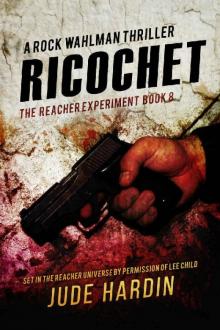 Ricochet: The Jack Reacher Experiment Book 8
Ricochet: The Jack Reacher Experiment Book 8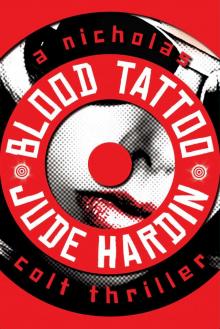 Blood Tattoo (A Nicholas Colt Thriller Book 5)
Blood Tattoo (A Nicholas Colt Thriller Book 5)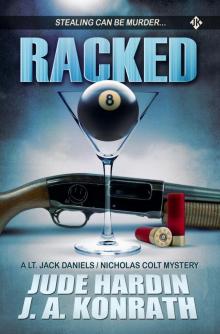 Racked (A Lt. Jack Daniels / Nicholas Colt mystery)
Racked (A Lt. Jack Daniels / Nicholas Colt mystery)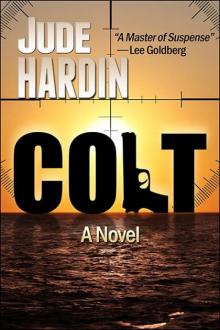 COLT (A Nicholas Colt Thriller)
COLT (A Nicholas Colt Thriller)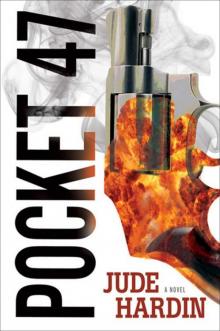 Pocket-47 (A Nicholas Colt Thriller)
Pocket-47 (A Nicholas Colt Thriller)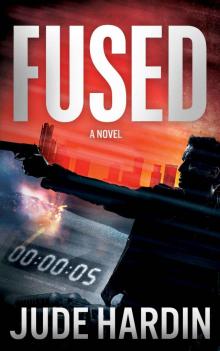 FUSED: iSEAL OMNIBUS EDITION (A Military Technothriller)
FUSED: iSEAL OMNIBUS EDITION (A Military Technothriller)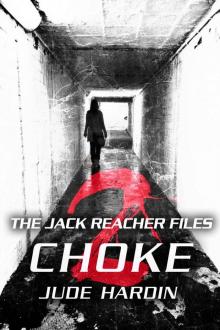 THE JACK REACHER FILES: CHOKE 2 (Episode 2 in the CHOKE Series)
THE JACK REACHER FILES: CHOKE 2 (Episode 2 in the CHOKE Series)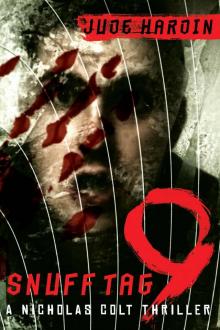 Snuff Tag 9 (A Nicholas Colt Thriller Book 3)
Snuff Tag 9 (A Nicholas Colt Thriller Book 3)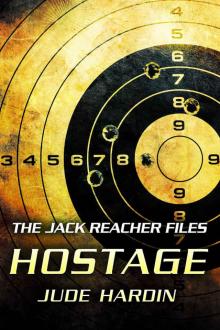 THE JACK REACHER FILES: HOSTAGE
THE JACK REACHER FILES: HOSTAGE THE JACK REACHER FILES: THE GIRL FROM THE WRONG SIDE OF CORDIAL (with Bonus Thriller THE BLOOD NOTEBOOKS)
THE JACK REACHER FILES: THE GIRL FROM THE WRONG SIDE OF CORDIAL (with Bonus Thriller THE BLOOD NOTEBOOKS)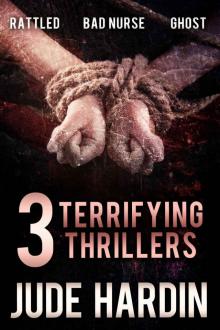 3 TERRIFYING THRILLERS
3 TERRIFYING THRILLERS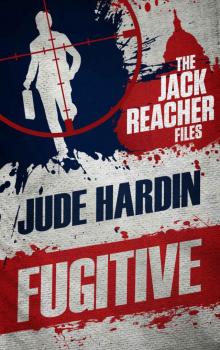 The Jack Reacher Files: Fugitive
The Jack Reacher Files: Fugitive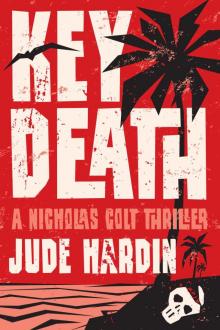 Key Death (A Nicholas Colt Thriller Book 4)
Key Death (A Nicholas Colt Thriller Book 4)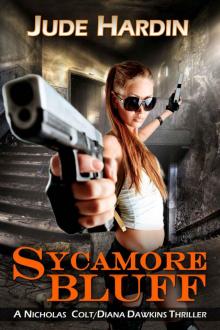 SYCAMORE BLUFF (Prequel to THE JACK REACHER FILES: ANNEX 1) (A Nicholas Colt Thriller Book 8)
SYCAMORE BLUFF (Prequel to THE JACK REACHER FILES: ANNEX 1) (A Nicholas Colt Thriller Book 8)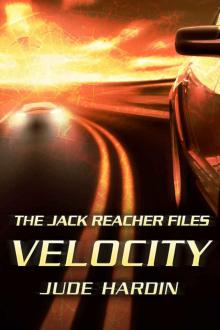 VELOCITY
VELOCITY Fire and Ice
Fire and Ice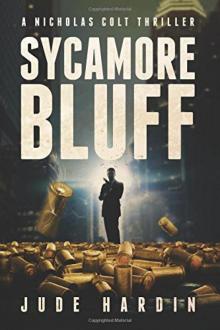 Sycamore Bluff
Sycamore Bluff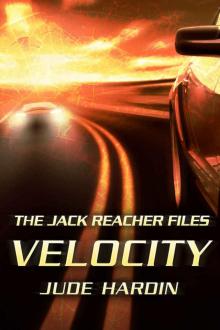 Jack Reacher Files_Velocity
Jack Reacher Files_Velocity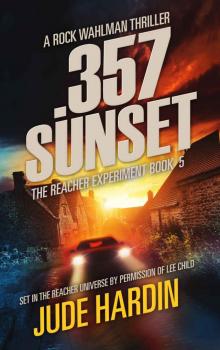 357 Sunset
357 Sunset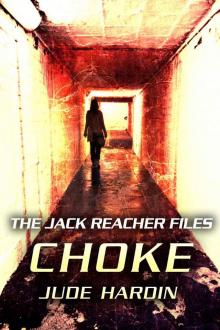 THE JACK REACHER FILES: CHOKE (Episode 1 in the CHOKE Series)
THE JACK REACHER FILES: CHOKE (Episode 1 in the CHOKE Series)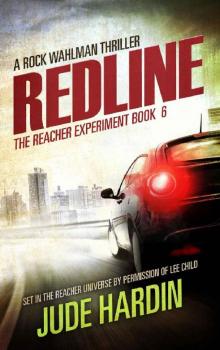 Redline: The Reacher Experiment Book 6 (The Jack Reacher Experiment)
Redline: The Reacher Experiment Book 6 (The Jack Reacher Experiment)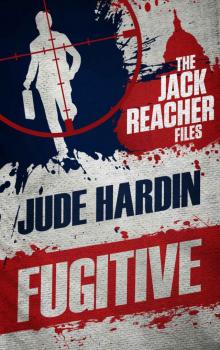 Fugitive
Fugitive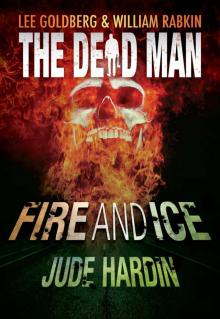 Fire and ice dm-8
Fire and ice dm-8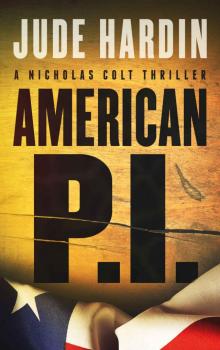 American PI
American PI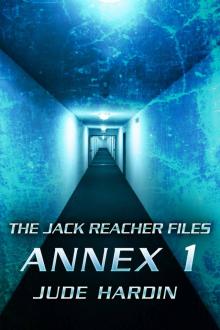 THE JACK REACHER FILES: ANNEX 1 (A Novel of Suspense)
THE JACK REACHER FILES: ANNEX 1 (A Novel of Suspense)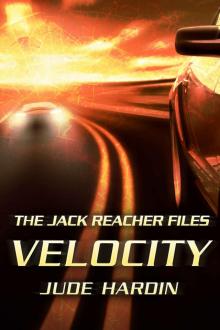 THE JACK REACHER FILES: VELOCITY (with bonus thriller CROSSCUT)
THE JACK REACHER FILES: VELOCITY (with bonus thriller CROSSCUT)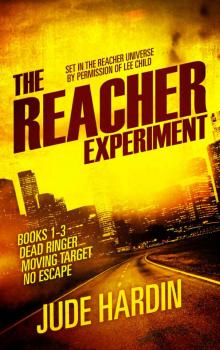 The Reacher Experiment
The Reacher Experiment Hostage
Hostage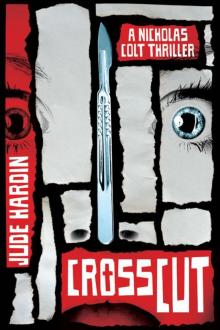 Crosscut (A Nicholas Colt Thriller Book 2)
Crosscut (A Nicholas Colt Thriller Book 2) Lady 52: A Jack Daniels/Nicholas Colt Novel
Lady 52: A Jack Daniels/Nicholas Colt Novel